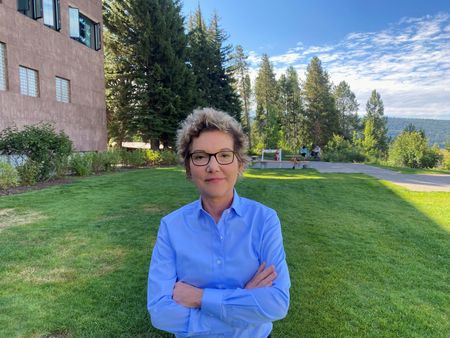BRASILIA (Reuters) -Brazil’s central bank chief Roberto Campos Neto on Monday highlighted a “huge” de-anchoring of inflation expectations in the country, adding that it is “very important” to bring inflation back to the 3% target, and policymakers are committed to doing so.
Speaking at an event hosted by the 20-20 Investment Association, Campos Neto said tight labor market data indicates the need to closely monitor services inflation.
He also reiterated that policymakers chose not to provide monetary guidance to allow time to assess the evolving scenario.
Campos Neto said consumer prices in Latin America’s largest economy had been converging with the central bank’s target, but that the trend had recently stalled.
He also noted that both market and company surveys show expectations drifting away from the official inflation target, a move also reflected in inflation implied by market prices.
“Because we’re seeing this huge de-anchoring … the central bank decided it was time to initiate the cycle,” he said, referring to the central bank’s decision to hike its key interest rate by 25 basis points to 10.75% last month.
“And again, we think it’s very important to make inflation converge (with the target). That’s our job. That’s our mission. That is determined by the government, and we will do that,” he added.
The central bank’s next monetary policy meeting takes place in November, and bets embedded in the yield curve point to an accelerated tightening, with an upcoming 50-basis-point rate hike.
Campos Neto said it “remains a puzzle” why the labor market has continued to be strong despite high borrowing costs, noting that fiscal stimulus explains only part of this phenomenon.
He stressed that Brazil’s economic growth has consistently surprised on the upside for a long time, with part of this strength coming from structural reforms implemented over the past five to 10 years.
“Obviously, there is a growing concern in Brazil that part of this is the fiscal (impact), and I think it is, but I think there is also a structural element that’s there,” he said.
(Reporting by Marcela Ayres; Editing by Paul Simao)











